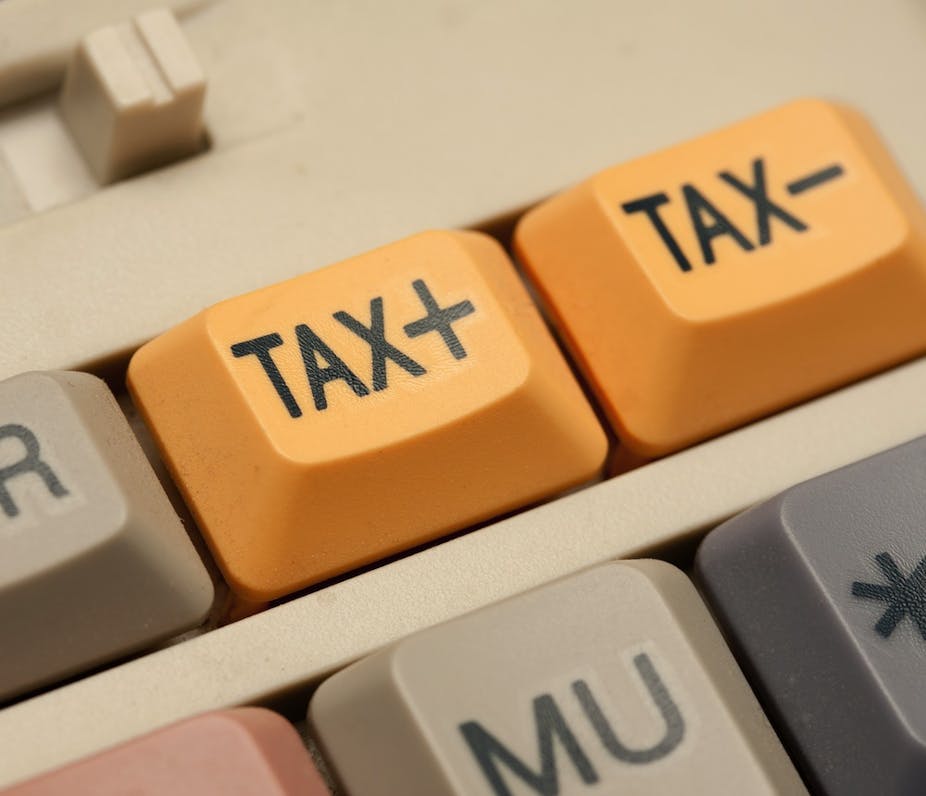The reform of Australia’s federation is under review. In this special series, we ask leading Australian academics to begin a debate on renewing federalism, from tax reform to the broader issues of democracy.
While many argue increasing or expanding the GST is the central fiscal reform required when it comes to tackling the lopsided state-Commonwealth funding relationship, the University of Melbourne’s Scott Brenton argues that it will come at a cost to equality.
Tax reform is often poli-speak for raising the Goods and Services Tax (GST). In a brilliant piece of political marketing, the GST was introduced at the turn of the century as a “states” tax that was meant to provide rivers of gold and simplify the tax system. Of course these optimistic projections have fallen short and a range of state taxes remain.
The GST is a national tax, levied at the same rate across the country, and collected by the Commonwealth government. The Commonwealth government chooses to earmark this particular source of revenue as untied grants to the states, but they could just easily earmark another source of revenue. Indeed the recent National Commission of Audit recommended “providing the States with access to the Commonwealth’s personal income base”, which would return us closer to the original federal bargain.
The Commonwealth government likes us to think that the GST is a states’ tax because it makes the political arguments for raising it more convincing: the states need money to provide services and this is the only way. In spurring the states to make this case, the Commonwealth government helpfully cut funding to the states for essential services in the recent budget.
Becoming the scare campaign
When it was introduced we were told the GST would be the panacea of fiscal woes, and critics predictions that it would rise in the future were dismissed as a “scare campaign”. Now we are being told the solution is a rate rise, and if you disagree you are part of that scare campaign.
But we should be scared of increasing inequality in the country. Oxfam recently cited a survey showing that 70% of Australians think it is unfair that richest 1% of Australians own more than the poorest 60% of Australians.
Increasing a tax that does not take into account people’s capacity to pay is regressive, particularly when lower income Australians tend to spend a higher proportion of their income on taxable goods and services. While we often think about tax as necessary to be able to fund services and infrastructure, the taxation system has another important role in advanced economies, and that is wealth redistribution. You will certainly not hear many politicians or economists ever mention that. Progressive income tax rates are a better way to do this.
Yet incomes tax rates have decreased, as we are told that they are too high when compared internationally. Similarly, we are told company taxes are also comparatively high; that a tax on the biggest polluters is a cost of living tax; and that the most profitable mining companies should not pay extra tax. At the same time we are meant to believe that the GST is not high enough. Indeed the GST is higher in many other European countries, for example, but so are a range of other taxes and welfare benefits. Furthermore, the cost of goods and services in Australia is already high by international standards, even with just a 10% consumption tax.
Shifting the burden to the poor
Raising the GST would simply continue to shift the tax burden onto groups in society that are least able to afford it, and not coincidentally, least able to politically mount real scare campaigns, such as the one against the mining super profits tax. While there may be solid economic modelling that attempts to compensate those who would be most negatively affected, the compensation is delivered through the tax and welfare system. Many Australians subsist outside of this system, particularly as welfare eligibility continues to be tightened.
Furthermore, higher income earners are best able to minimise their tax, in addition to a range of concessions from superannuation to investment properties, that are already an inefficient and inequitable feature of our tax system. The loopholes in our existing tax base need to closed first, before we countenance increases in the GST.
The Australian federation does need to be renewed with a new bargain that better acknowledges that the federation only exists because of the states and not the other way around. Currently the federal government collects about 82% of total revenue, with only around 15% going to the states. Yet the states are responsible for much of the social service delivery, and these costs are increasing much faster than revenue. The states need to have responsibility for or control of significant revenue bases, and not just depend on grants. A share of income tax merits further consideration.
Unfortunately an increase to the GST appears to be least painful politically. If the proposal continues to gather momentum then at least make it an actual states’ tax. If each state can set its own rates, as is the case in other federations, then there could be some downward pressure due to competition. However, before getting to that point, it is worth thinking about not just what sort of federation we want, but what sort of society we want to live in.
And with no disrespect to my economist friends intended, that is not a question best answered by them.
Renewing Federalism is in partnership with the Australian National University’s Tax and Transfer Policy Institute at the Crawford School of Public Policy and with the University of Melbourne School of Government.
Our Renewing Federalism series will culminate in a symposium on October 2 at ANU. If you would like to attend the event, please see event details and RSVP here.
Read more in the series here.

